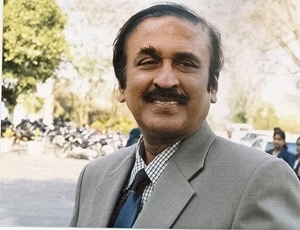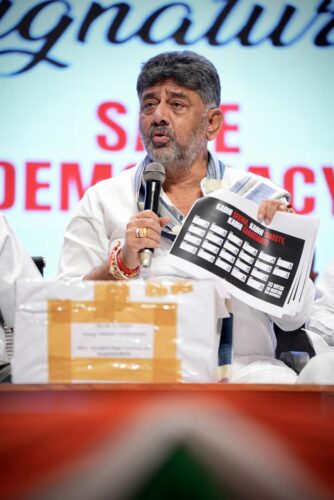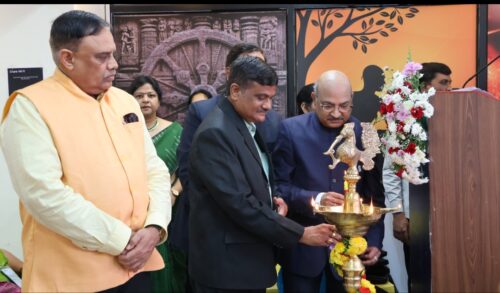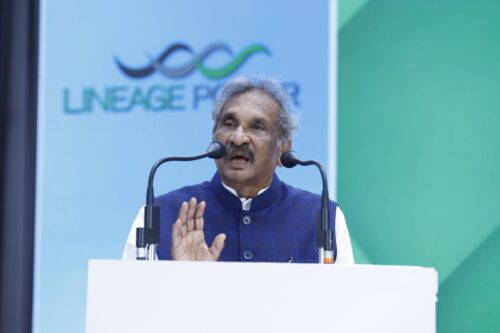GUEST COLUMN: Dr N Prabhudev
Bengaluru, Oct. 23: The Golden Hour: the First Hour is the Most Important after a Heart Attack! Appropriate action within the first 60 minutes of a heart attack can reverse its effects. This is extremely important because most deaths and cardiac arrests occur during this period. However, if the person reaches the hospital and gets treated within this period s/he can expect near-complete recovery.
The mortality of a cardiac arrest outside the hospital is 90%. After the golden hour heart muscles start to die within 80-90 minutes after it stops receiving blood, and within 6 hours, nearly all the affected areas of the heart could be completely damaged. It means, the faster normal blood circulation is restored, the lesser the damage will be.
If a patient receives treatment within 2 or 4 hours, we can prevent damage to most of the heart muscles. However, more than 5 or 6 hours delay in treatment, significant damage occurs! After 12 hours, generally, the damage is irreversible.
Every 40 seconds one person dies of a Heart attack in India! Don’t be scared! Most of the heart attacks survive – around nine out of 10 and go on to enjoy full, active lives. You’ll get to leave the hospital pretty quickly. We place a stent in the artery to open up the blocked vessel, and that procedure is pretty well tolerated by most people! “As a result, many patients go home – may be in a few days!
Each year, more than 10 lakh people have a heart attack in India! The majority of these heart attacks- 75% are for the first time. About 25% heart attacks happen to people who have already survived one. Heart attacks increase as people age and are seen among people 60 and more. Now we see young people suffering heart attacks for various reasons! Men are more likely to have heart attacks than women! The female hormone they have appears to have some protective effect till they attain menopause!
Heart disease causes one out of every five deaths. Currently, 14 out of 100 people will die from a heart attack. About 77% of deaths from heart disease occur outside of the hospital.
All heart attacks are serious, but a massive heart attack can be deadly. A massive heart attack occurs when one or more of your heart arteries is suddenly blocked, disrupting oxygen flow to the entire heart. Arterial blockage of 80% or 90% leads to a non-fatal heart attack. However if one or more of the major arteries are blocked 100% and if left untreated, it can cause permanent heart damage or even death.
Heart attacks accompanied by Shortness of breath and neck pain, or transient loss of consciousness – are more serious! 76 per cent of heart attack patients with dyspnoea or shortness of breath as their main symptom are alive at one year as compared to 94 per cent of those with chest pain as the predominant feature! Patients presenting with shortness of breath have a worse prognosis than those with chest pain and other symptoms. They are less likely to be alive one year after their heart attack!
In some people, heart attack symptoms appear gradually, and in others suddenly. Not everyone will experience all the symptoms of a heart attack the same way, and symptoms can vary in intensity and severity! Some people may feel faint, dizzy, or lightheaded. Experiencing cold sweats is a tell-tale sign of heart attacks! Unexplained severe fatigue is a symptom of a heart attack or impending heart attack.
Patients are divided into three groups according to their main symptom at presentation.
• Chest pain is the most common presenting symptom 91%
• Cheat pain + dyspnoea +fatigue – 7 %
• Chest pain + syncope 2 per cent –Syncope is a temporary loss of consciousness
A middle-aged man starts clutching his chest, sweating profusely, and gasping for air – It’s the “Bollywood drama” depiction of heart problems! It’s the most dramatic way—but not the most common way—in which patients present with heart attack! Heart problems can actually be quite subtle!
A sinking feeling in your chest, if you have pulsatile throbs in the ears – Annoying, right? It’s also an atypical heart symptom! Pain or fatigue in the legs while walking are other weird symptoms! Jaw or neck pain with exertion! After having a heavy meal, you might experience chest discomfort “or a lot of belching, Chest pain that’s similar to indigestion or heartburn can signal ischemic heart disease!
Patients with dyspnoea/fatigue as their main symptom are more likely to also have high blood pressure, diabetes, chronic kidney disease and chronic obstructive pulmonary disease – COPD. This highlights the need to consider a diagnosis of myocardial infarction even when the primary complaint is not chest pain.
How to manage a heart attack at home!
There are many ways to reduce the risk of having a heart attack! But there is no way someone can stop one on their own. Heart attacks are common and can be life threatening.
Do not panic! Lie down in a comfortable posture. Take 150 to 300 mg of tab Aspirin by mouth! Aspirin is a blood thinner. It prevents the platelets in blood to form clots. This can help reduce the risk of a heart attack and limit the severity of one that occurs. Seek medical help at the earliest! Time is key! While waiting for the ambulance Rush someone to a nearby medical shop and get a tab of sorbitrate! Take a sub – lingual sorbitrate! It relaxes the coronary artery or overcomes the spasm of coronary arteries to improve coronary flow!There is no harm taking a sorbitrate tab even if it is not a heart attack!






More Stories
Adi Chunchanagiri Math to Support Education of Auto Drivers’ Children Facing Financial Hardship: Sri Nirmalanandanatha Swamiji
1.12 crore signatures collected in the signature campaign against vote theft: DCM DK Shivakumar
Bidadi Waste-to-Energy Plant Fully Compliant with Environmental Norms: KPCL